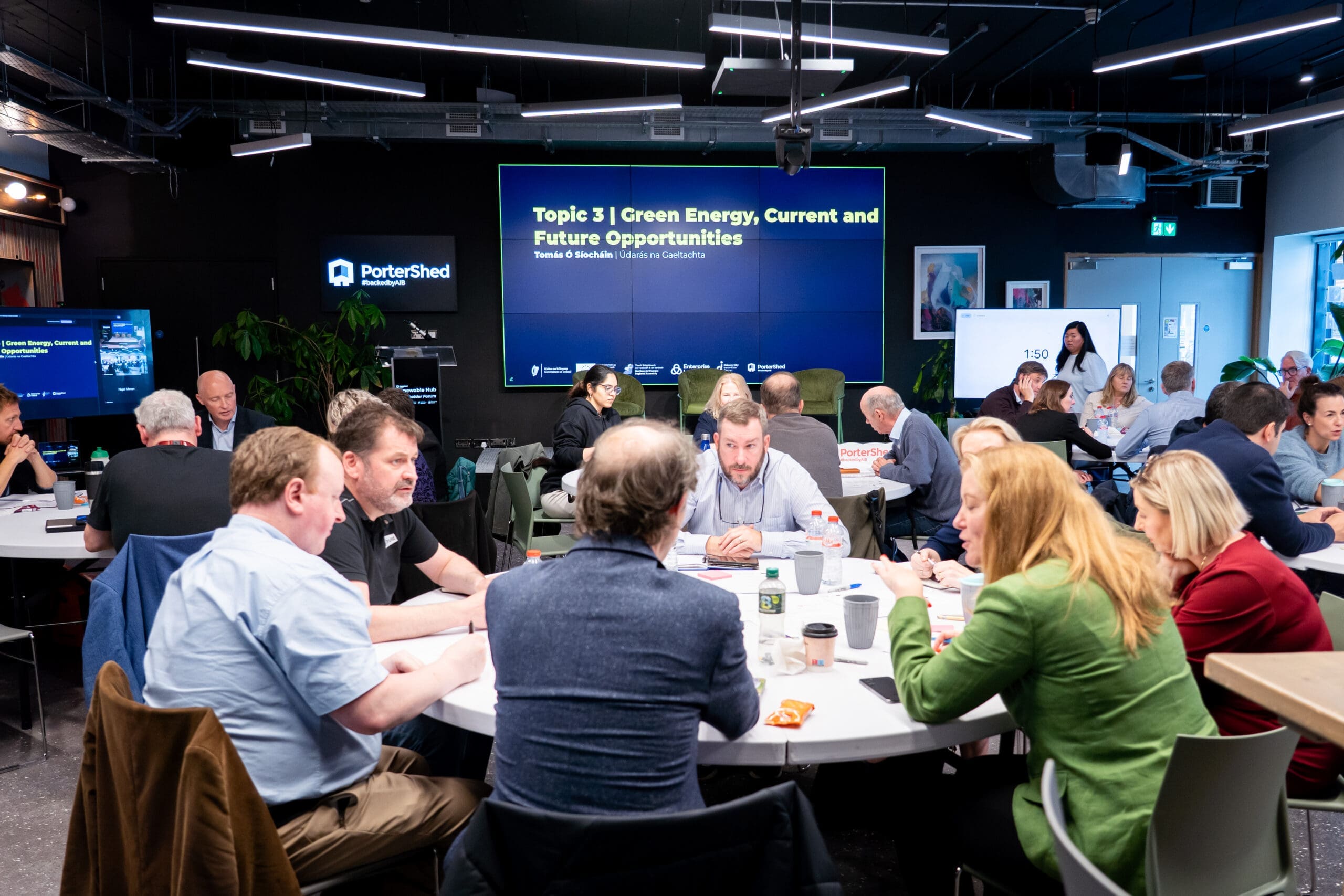“I often joke and say that I started out as an accidental founder, meaning that it was never my intention to start a company, but it was sort of a ‘right place, right time’ sort of thing,” Carol Malakasis, Managing Partner at Rampd, explains how she got involved in sales and the start-up world
Her first co-founded company was a non-dairy milk company which got bought out, and her initial experience meant that she was selling her own product, something that provided her with a “crash course” on how to sell.
A number of journeys with early-stage tech start-ups followed and Carol now works with early-stage technical founders – who have built their own products – and she works with them to help them build a go-to-market strategy, figure out how to convert leads into sales, create playbooks, and teach founders how to sell.
Carol is an NYC start-up expert, with over twelve years of experience selling. She has had three exits, one early on in her career as a co-founder, and two as a founding member of companies that ultimately became acquired. Having made over 500,000 cold calls in her career, Carol believes that everyone can learn how to sell if taught the right way.
“Over the past few years, I’ve worked with over 50 companies, and I’ve had the opportunity to invest in a couple of them as well, but my focus is early-stage seed/Series A,” she says.
For Carol, one of the recurring themes of working with many of these companies is that they don’t always have a clear roadmap in place when it comes to ‘who’s going to buy this product?’ or ‘how am I going to sell this to customers?’. Carol says that it’s typically the norm for start-ups to put the cart before the horse, in many ways.
“What happens is that at pre-product market fit, a lot of founders are focused on the technology, and they’ll spend 80 percent of their time building this perfect MVP, and they have no strategy as to who they’ll sell this to, what their sales motion will be, what their messaging will be, etc. So, what often happens is that they’ll have assumptions, but they won’t actually go to market and test those assumptions. So, when time comes to go to market, they often get a poor reception,” Carol explains.
“So, when you’re not selling, when you’re not getting cash flow in…you run out of cash, and a lot of companies – I’ve seen it time and time again – have to pivot over and over and over. But in many cases, yes, tech comes first and sales is an afterthought, and very often, it’s too late.”
Pinning down a reliable and company-relevant sales playbook takes time and energy, but clearly it’s an important step to take, as highlighted by Carol’s comments.
But, as Carol explains there are plenty of other steps that can be made before a company even reaches that stage.
 “There’s definitely some key things that you can do before you build a playbook – first of all, that would be figuring out what your elevator pitch is. I cannot tell you how many times I’ve jumped on a call with a founder and two minutes, three minutes, five minutes in, I still don’t know what they do,” she says.
“There’s definitely some key things that you can do before you build a playbook – first of all, that would be figuring out what your elevator pitch is. I cannot tell you how many times I’ve jumped on a call with a founder and two minutes, three minutes, five minutes in, I still don’t know what they do,” she says.
Getting this fundamental right is something that founders should – and need – to work on because it will stand them in excellent stead as they network and speak to all sorts of different players in each industry.
Basic market research prior to research, of course, is also something that Carol recommends companies do way before any sales playbook work starts because it sets them up with the platform they need to reach the next level.
Equally important is the ability of a founder to be comfortable with making storytelling part of how they sell – and why they sell. Indeed, it’s also crucial that founders are willing to engage with the idea of storytelling, rather than simply going in with a col, clinical approach to selling. Carol has called this becoming a “Chief Storytelling Officer”.
“No-one will know the product better than a technical founder, and no-one will ever be as passionate about the product. So, combining that knowledge and passion to go out and spread the gospel of what it is that they’re doing becomes a superpower. But the reason why it’s important is because it’s a skill that they will need everywhere, from fundraising, to speaking to the press, to selling to customers, to convincing their first hires one why they should come work for the company – so that’s why it’s so important to get it right
“It will either push you forward, or it will stop you, very very soon.”
And on the flipside of that, founders also need to realize that while perfecting their pitch, crafting their story, and making clear what it is their product service can do and how it will work are all very important, there is another part of the sales process that is just as important.
“There’s a cliché in the States which is called ‘ABC’ which stands for ‘Always Be Closing’, but what the acronym should be is ‘ABQ’, Always Be Qualifying. What I mean is – you need to understand where people are and where they want to be.
“It’s almost like, they’re standing at point A, they’re trying to get to point B, and your product becomes the bridge between A and B. You can’t successfully pitch someone without knowing where they are. When you understand where they are, your pitch becomes more consultative and it’s catered to them versus talking about features – that’s not why people buy. People buy because they believe that you can be competent to help solve their problem.”
Carol Malakasis will be speaking at the PorterShed this Friday, July 1st, and you can register for Carol Malakasis’ sales talk at the PorterShed, Bowling Green, right here. The breakfast sales talk will be happening in the morning from 9:30 am on the day – and we can’t wait to see a full house in attendance.
By Trevor Murray

Content Marketing Specialist at the PorterShed
Email: trevor@portershed.com | LinkedIn | Twitter


